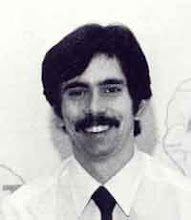#2 Word Processing to Construct Meaning
Tell us the level of students with whom you plan on teaching as well as your content area or the content area you have chosen for the newsletter. Tell us the standard you are working with. Then, explain the benchmark and/or grade level indicators you used for the Newsletter assignment.
Most importantly, reflect on how your newsletter activity represents a learner-centered activity where your future students (on their own or with younger children, working with the teacher) would be able to construct meaning regarding the benchmark or grade level indicators by using word processing.
The Newsletter I would have my Eleventh Grade English students create would focus on the Research Standard. There are seven (7) specific grade level indicators with the research process and I could take two different approaches. I could have students work in pairs and each pair would create a newsletter to cover one of the seven aspects and then each pair would share their newsletter. Or, I could have students work in groups of four and create a newsletter that would provide an overview of all seven. I chose the latter approach, but after using this approach, I now believe it would be better to employ each approach in the same class. By doing that, I could have some students work in groups of four, and others work in pairs. That would be advantageous because not all students enjoy working in groups. Also, this approach would provide both an overview of the Research Standard as well as specifics on each of the seven grade level indicators for the Research Standard for grades 11 & 12. Briefly, the seven concepts covered are a) open-ended questions that also narrow the scope; b) identifying appropriate sources; c) determining accuracy of sources; d) analysis of the complexity and diversity of information acquired; e) importance of and how to integrate quotes; f) the need to use style guides and appropriate citations; and g) the need for a variety of delivery mechanisms.
Ultimately, my goal as a teacher with these benchmarks is for my students to be able to effectively use these skills when engaged in research and functioning as citizens in a democracy. As such, it is important to me that students not only understand these standards, but they are also able to use them while doing research. For these reasons, I wanted to take an approach that accomplished several important things. First, my students needed to discover for themselves what the terminology means (constructing their own meaning). I know that different students would find slightly different meanings, but for me that is critical because that is an important characteristic of the research process. Not all information in this area is absolute, some of the information is relative. Plus, since multiple students will be looking at the Research Standards and 7 grade-level indicators, I believe all the important aspects would be covered. Second, I want my students to retain this information, and as such, it was important that they were engage in finding its meaning. If they just read about these standards or took notes on them, they would not be as likely to retain or understand the information. Finally, I want my students to realize that process of research means a lot of different things - it is composed of several different steps. Either approach -- having students work in groups to cover all seven characteristics or breaking it down into seven separate tasks and having different pairs of students cover each aspect -- would accomplish these three goals.


